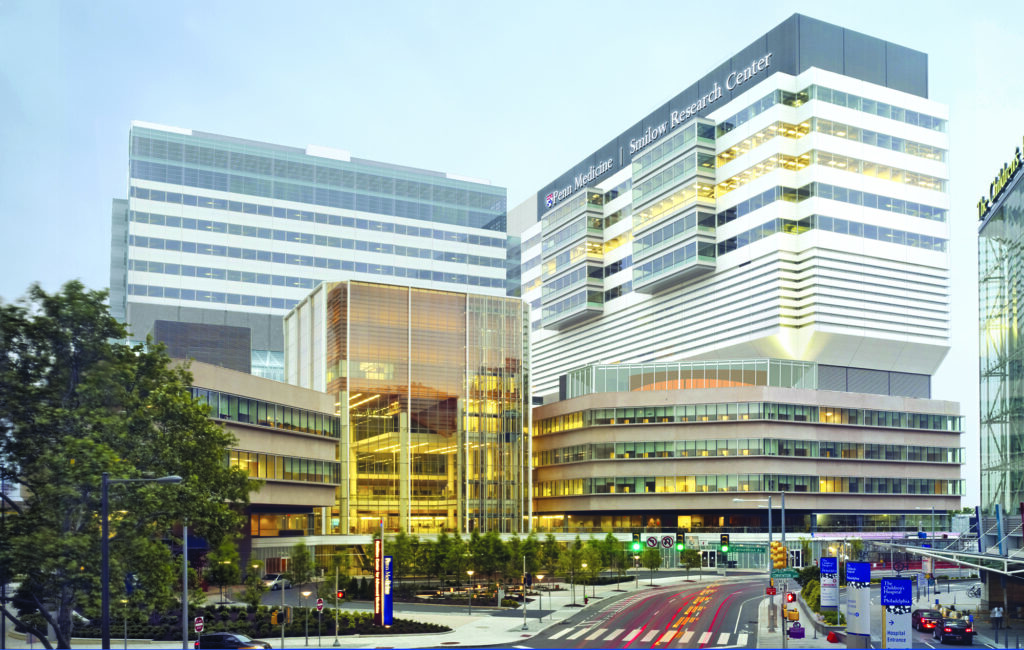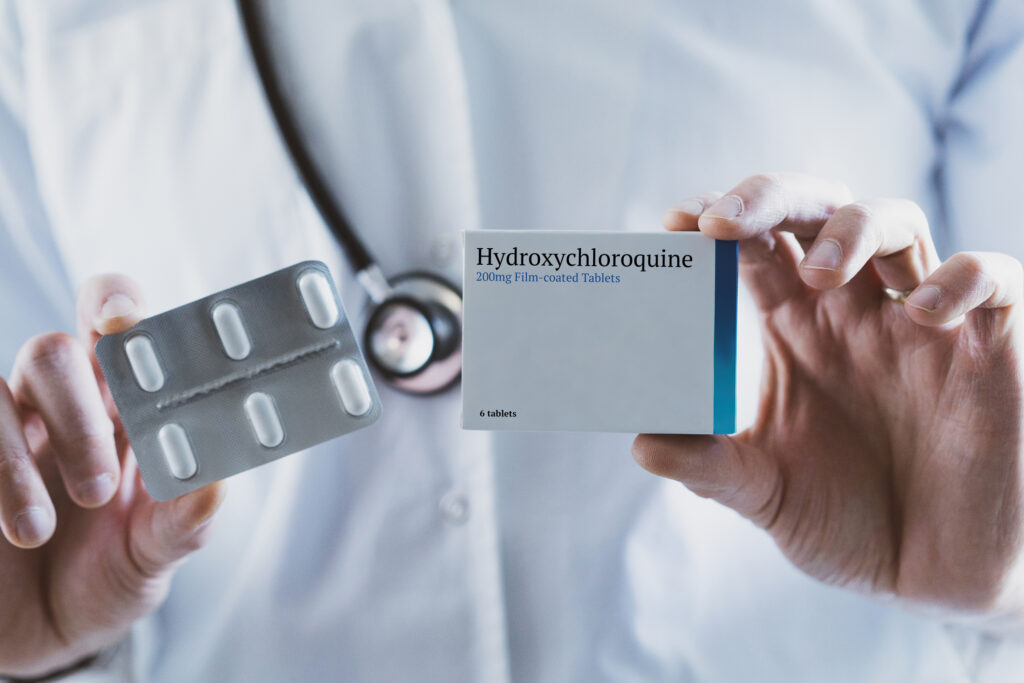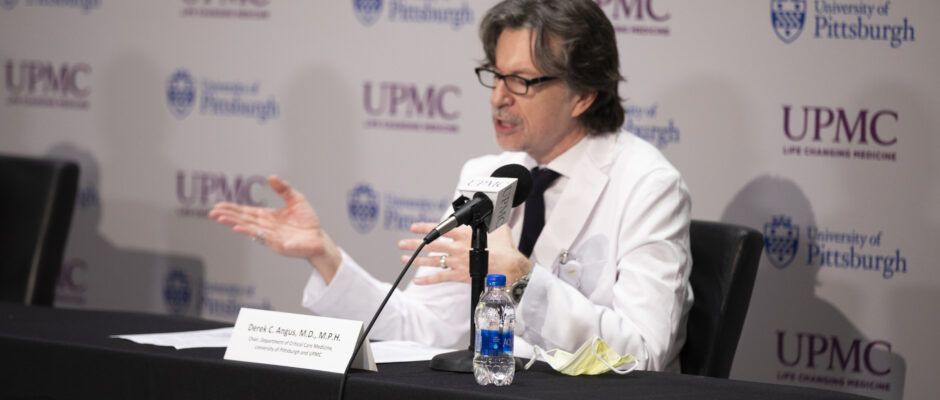Pennsylvania’s world-renowned life sciences sector is leading the charge in the fight against COVID-19. According to Christopher P. Molineaux, president and CEO of Life Sciences Pennsylvania, many of the association’s 850 member organizations are working tirelessly and expeditiously to curb the coronavirus.
“Our life sciences community is working collaboratively – with one another, as well as with the state and federal governments – to address this significant public health concern on several fronts,” he says. “[That includes] developing diagnostic tests, vaccines and therapeutics; repurposing manufacturing facilities to produce needed supplies; creating innovative solutions to deal with product and supply shortages; contributing surplus supplies to help fill shortages in hospitals and healthcare systems; and volunteering medical expertise and time to help our overstretched healthcare providers.”
Here are a few of the most noteworthy efforts coming out of PA.
University of Pittsburgh Medical Center (UPMC)
Researchers at the University of Pittsburgh Medical Center (UPMC) recently made two major announcements: one concerning a possible vaccine and another establishing an international initiative that would reduce the time needed to conduct clinical trials on proposed medications.
Before the emergence of COVID-19, Dr. Derek Angus, professor and chair of the Department of Critical Care Medicine at University of Pittsburgh and UPMC, led a group of international collaborators in developing a platform called REMAP-Community Acquired Pneumonia (REMAP-CAP). REMAP was designed to find optimal treatments for severe pneumonia, both in non-pandemic and pandemic settings.
When COVID-19 began circulating, REMAP-CAP was rapidly adapted, as per its intent, to incorporate additional treatment regimens specifically targeting the SARS-CoV-2 virus.
We must throw out old ways of thinking and fuse clinical care and clinical research into one extremely efficient system. This is an unprecedented pandemic and we need an unprecedented response.Dr. Derek Angus, UPMC
REMAP (randomized, embedded, multi-factorial, adaptive platform) allows researchers to rapidly test multiple treatment approaches simultaneously at a lower cost and with fewer patients than traditional clinical trials. The REMAP design was first described by Angus in 2015 in the Journal of the American Medical Association (JAMA). In addition, he recently authored a viewpoint in JAMA advocating for the “learning while doing” approach.
“We must throw out old ways of thinking and fuse clinical care and clinical research into one extremely efficient system,” he explains. “This is an unprecedented pandemic and we need an unprecedented response.”
Earlier this month, UPMC researchers also announced that they had developed a vaccine that was being submitted to the Food and Drug Administration (FDA). Their work was based on previous experience developing vaccines to protect against SARS and MERS.
Although most clinical trials run from 12 to 18 months, UPMC officials hope the vaccine is expedited due to extreme demand.
Plymouth Meeting-based INOVIO Pharmaceuticals recently announced that it had initiated clinical trials on a DNA vaccine candidate (INO-4800) to prevent coronavirus infection.

Dr. J. Joseph Kim, the company’s president and CEO, says that the clinical trial is a significant step forward in the global fight against COVID-19.
“It also demonstrates the power of our DNA medicines platform to rapidly develop and advance a vaccine for COVID-19 into Phase 1 clinical testing,” he explains. “Our dedicated team of staff, partners, and funders have been mobilized since the genetic sequence of the virus became available in early January and continues to work around the clock to ensure that we are rapidly advancing INO-4800 through this Phase 1 study towards planned efficacy trials.”
The Phase 1 study will enroll up to 40 healthy adult volunteers at the Perelman School of Medicine at the University of Pennsylvania in Philadelphia and at the Center for Pharmaceutical Research in Kansas City, MO, where screening of potential participants has already begun.
Each participant will receive two doses of INO-4800 four weeks apart, and the initial immune responses and safety data from the study are expected by late summer.
Penn officials, like so many of their colleagues in the healthcare profession, are conducting numerous research projects to find medicinal solutions to the coronavirus.

One study of note is evaluating whether the drug hydroxychloroquine (HCQ) can benefit people infected with COVID-19, and whether taking the drug preventatively may help people avoid infection altogether.
“The Prevention and Treatment of COVID-19 with HCQ (PATCH)” project is currently enrolling patients in three separate sub-studies. The three studies will compare HCQ to a placebo in infected patients quarantined at home; the results of giving low versus high dosage levels to hospitalized patients; and whether HCQ prevents infection in healthcare workers treating patients.
“We know HCQ can be an effective antiviral in a lab setting, but despite recent public conversation, there is no definitive evidence it can work in humans infected with COVID-19,” says the study’s principal investigator, Ravi K. Amaravadi, MD, an associate professor of Hematology-Oncology who has spent his career studying HCQ and related compounds.

Since the onset of COVID-19, Penn officials have also founded, in cooperation with the Perelman School of Medicine, the Penn Center for Research on Coronavirus and Other Emerging Pathogens. The Center’s goals are to expand and accelerate SARS-CoV-2 research at Penn, the Children’s Hospital of Philadelphia (CHOP) and The Wistar Institute; provide centralized information on SARS-CoV-2 research developments in the community and globally; and compile data and catalyze opportunities for new research funding for SARS-CoV-2 and other emerging pathogens.
Villanova University is in the final phases of creating a low-cost, low-parts ventilator called NovaVent. The machine aims to fill the massive gap in the number of available machines compared to the projected number of patients who may need one as the virus spikes across the United States.
Dr. C. Nataraj, a professor in the university’s mechanical engineering department, says the device is working in the lab with a CPR dummy lung and they will test it again at CHOP with a sophisticated breathing lung simulator called ASL 5000.
“That test should give us real confidence in how NovaVent would perform with real patients,” says Dr. Nataraj.
All personnel involved are volunteers, and all facilities have been made available to us for free.Dr. C. Nataraj, Villanova University
He adds that they may follow up with an animal test, but are not sure if that step will be needed. They will, however, validate their testing at the ECRI Institute in Plymouth Meeting. The university is required to apply for Emergency Use Authorizations with the FDA and then, while waiting for federal approval, will work with the Pennsylvania Department of Community and Economic Development to find Pennsylvania-based businesses who can manufacture the NovaVent ventilator.
“Beyond this immediate need, we will continue the development to help fulfill a long-term need for low-cost emergency ventilators in resource-limited conditions and countries,” explains Nataraj.
He praised the sacrifice individuals have made while also noting the collaborative nature needed to bring this project to life.
“We are designing NovaVent in partnership with medical experts at Geisinger Health, CHOP and [Villanova’s] College of Nursing,” explains Nataraj. “Additionally, engineering graduates who work at various companies, including SouthCo, TDI Technologies and NSWC (Navy), are also assisting. All personnel involved are volunteers, and all facilities have been made available to us for free.”
Harrisburg University of Science and Technology
Because COVID-19 is a novel virus, there is a critical need to create information systems to house the data being collected.
About 60 graduate students in Harrisburg University’s Computer and Information Sciences program are building infrastructure to house massive volumes of information. That data will help health care workers and government officials working to defeat the virus, and deal with the economic and societal damage it has caused.
“There are many parts to any battle,” explains Professor Ron Jones. “The first part is winning the actual conflict itself and the second is what we will do once we get this under control. We have to assess the damage to our economy, our culture, to families, and the business community. We will have to put together a plan that is just as extensive as the plan we put together to combat what the virus is currently doing.”
According to Jones, HU’s students are conducting a joint class and research project in data mining and big data architecture that will be a resource for individuals seeking content on several specific virus-related topics.
“Many of the COVID-19 task forces, state and federal, clearly state that mining coronavirus data is the key to combating the virus,” notes Jones.
Under the direction of five university professors, the students are creating algorithms and using artificial intelligence to research and gather specific data on the rise of black markets during the outbreak and the physiological impacts on those who have and haven’t been infected.
Jones said the students recently finished building several websites that will be available to researchers, healthcare workers and other parties, and added that he expects the project to continue at least through the end of 2020.



